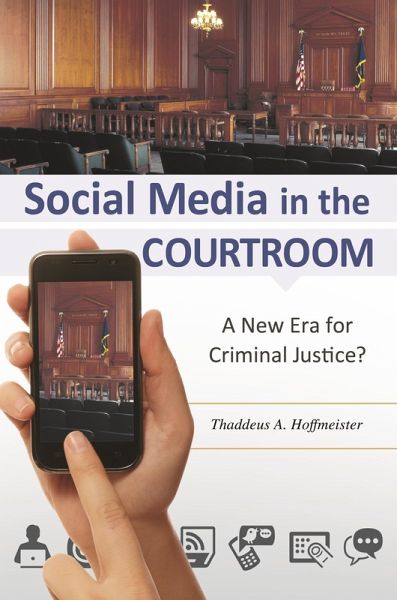
Social Media in the Courtroom (eBook, PDF)
A New Era for Criminal Justice?
Versandkostenfrei!
Sofort per Download lieferbar
40,95 €
inkl. MwSt.
Weitere Ausgaben:

PAYBACK Punkte
20 °P sammeln!
Social media hasn't just changed society-it's changing the way in which criminal law is prosecuted, defended, and adjudicated. This fascinating book explains how. While social media has become embedded in our society as a way to stay connected with friends, it serves another important purpose: to support the prosecution and defense of criminal cases. Social media is now used as proof of a crime; further, social media has become a vehicle for criminal activity. How should the law respond to the issue of online predators, stalkers, and identity thieves? This book comprehensively examines the com...
Social media hasn't just changed society-it's changing the way in which criminal law is prosecuted, defended, and adjudicated. This fascinating book explains how. While social media has become embedded in our society as a way to stay connected with friends, it serves another important purpose: to support the prosecution and defense of criminal cases. Social media is now used as proof of a crime; further, social media has become a vehicle for criminal activity. How should the law respond to the issue of online predators, stalkers, and identity thieves? This book comprehensively examines the complex impacts of social media on the major players in the criminal justice system: private citizens, attorneys, law enforcement officials, and judges. It outlines the many ways social media affects the judicial process, citing numerous example cases that demonstrate the legal challenges; and examines the issue from all sides, including law enforcement's role, citizens' privacy issues, and the principles of the Fourth Amendment. The author also shines a critical spotlight on how social media has enabled new types of investigations previously unimagined-some of which present ethical problems.













